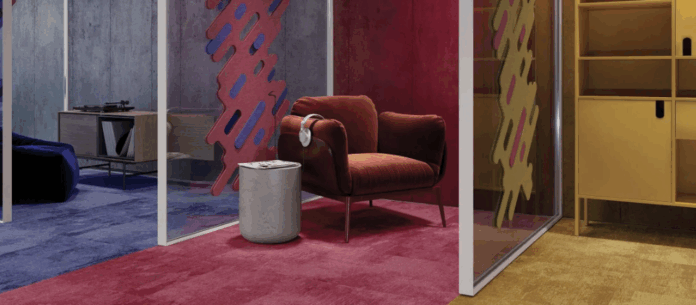When your commercial carpet choice does its job well, it quietly supports the function and builds the ambiance of your space. This effect can be quite literal, as the right carpet absorbs sound and softens movement. This dampening effect also positively contributes to shaping the space’s atmosphere without necessarily drawing attention to the carpet itself.
More than a design decision, choosing the right carpet for your commercial facility in New Zealand is about creating an environment that works as well as it looks. Are you looking for quality carpet options and a team of expert carpet installers? When choosing a carpet NZ businesses like yours will be delighted with, what should you keep in mind? Remember these considerations before you choose a flooring type for your store or facility.
- Foot Traffic and Durability
Start the selection process by assessing how much daily use each area of your space receives. High-traffic zones such as entrances, corridors, and shared work areas need hard-wearing carpets designed to handle constant movement with minimal wear. Commercial-grade nylon or solution-dyed carpets are popular choices for such areas because they resist crushing and easily maintain their appearance over time. In contrast, softer, more textured pieces may be good choices for quieter areas like meeting rooms.
- Maintenance and Cleaning Requirements
All carpets require regular cleaning so that they can retain their look and feel. However, not all carpet materials are equally easy to maintain. If you’re looking for something that resists stains, you may want to go for materials like nylon and polypropylene. Carpets made from these synthetics are easier to clean and stain-resistant compared to those made from traditional natural materials, making them ideal for busy workplaces. Regardless of the material, it also helps to check how often deep cleaning is required and whether your chosen carpet can handle commercial cleaning methods without fading or fraying.
- Acoustic Performance
Noise can be a major distraction in open-plan offices, hospitality venues, and educational spaces. You want to keep this to a minimum when designing a space that is conducive to rest or concentration. Carpets help absorb sound and reduce echo, creating a quieter, more comfortable environment. If you want to provide a calm, productive atmosphere, look for carpets with enhanced acoustic backing or additional underlay for improved sound insulation.
- Comfort and Safety
Thick carpets offer a cushioned surface that makes walking and standing more comfortable, especially in areas where staff are on their feet for long periods. They also provide better slip resistance compared to hard floors, thereby lowering the risk of accidents. When choosing carpet and underlay, prioritise options that strike a good balance between softness, support, and stability.
- Design and Branding
The design of your flooring contributes to your overall brand image. Visual and tactile elements such as colours, patterns, and textures can all influence how people perceive your space. A corporate office may benefit from neutral tones that create a sleek, professional look, while a hotel or retail store might use richer shades and patterns that evoke their branding to create an inviting atmosphere. Fortunately, some local carpet suppliers can customise designs to closely match your brand colours or layout needs.
- Sustainability and Local Climate
Carpets made from recycled fibres, eco-certified materials, or locally-sourced natural wool align with New Zealand’s growing focus on environmental responsibility. Wool, in particular, is a smart choice for local businesses. The material is renewable, durable, and offers excellent thermal regulation properties, making it ideal for NZ’s varying climate.
- Installation and Replacement
Installation time and flexibility matter, especially for larger and busier facilities. If you’re managing a big commercial space, carpet tiles are a practical option because they can be installed quickly and replaced individually if damaged. This minimises downtime and reduces waste compared to replacing entire rolls of carpet.
- Budget and Long-Term Value
While it’s tempting to go for the most affordable option, cheaper carpets often wear out faster and may need more frequent replacement. In the long run, it’s wiser to invest in quality materials that last longer and perform better over time. Rather than just looking at the upfront price of the carpet, consider the total lifecycle cost, which includes purchase, installation, maintenance, and eventual replacement.
- Health and Indoor Air Quality
Indoor air quality directly affects your staff’s well-being and productivity. Carpets and adhesives with low volatile organic compound (VOC) emissions are generally better options for ensuring a healthier workspace. Some products may also feature antimicrobial treatments that help maintain hygiene, which can be particularly helpful in healthcare and education settings.
- Supplier Reputation and Warranty
Finally, work with a reputable local supplier and carpet layer who understands NZ’s commercial flooring standards. Reliable suppliers not only provide warranties but also offer guidance on locally-appropriate product selection, installation, and maintenance. A good partnership can make a big difference in getting the best long-term performance from your carpet.
Flooring Is Your Business’s Silent Partner
Good flooring lets people move comfortably, focus better, and feel at ease in the space, whether they notice it or not. When you take the time to choose carpeting solutions that match your space’s needs and your brand’s character, the difference is clear, even if it’s felt more than seen. The right commercial carpet won’t just complete your business interior; it will help define how people experience it.


